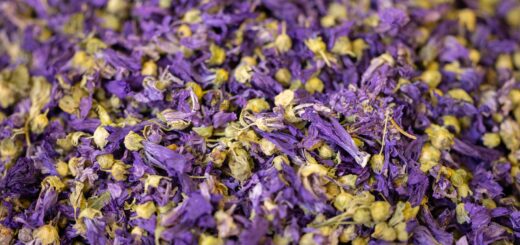Unlocking the Healing Potential of Psychedelics for Mental Health
The exploration of unconventional approaches to mental health treatment has led scientists and researchers to delve into the healing potential of psychedelic substances. Leveraging the inimitable effects of these substances, a field has emerged: psychedelic therapy. This form of treatment combines psychotherapeutic techniques with the use of psychedelics and has demonstrated promising results in the treatment of a variety of mental health conditions.
In recent studies, psychedelic-assisted treatment has proven effective against a range of ailments from anxiety disorders to depression. The active ingredients in these substances — like psilocybin in magic mushrooms, LSD, and MDMA — seem to induce transformative experiences that prompt emotional healing.
Depression is a major public health issue affecting an increasing number of people worldwide. Traditional depression treatments have various shortcomings, including side effects and limited efficacy, leading many to seek alternative solutions. Recent studies have shown that psychedelic therapy can be a powerful depression treatment. Utilizing psilocybin, researchers found that a single dose had lasting effects on feelings of well-being and life satisfaction, reducing depression and anxiety symptoms among patients with life-threatening cancer.
Anxiety disorders, which affect a significant population, have also seen promising results with the use of psychedelics. Research shows that the substances may help reduce anxiety and its physiological corollaries amongst patients with end-stage diseases. It’s speculated that this is in part due to their ability to facilitate emotional breakthrough and connection.
Another area where psychedelics hold promise is PTSD therapy. Studies have demonstrated that MDMA-enhanced psychotherapy can have profound lasting benefits for people suffering from post-traumatic stress disorder (PTSD), including reduced symptoms and improved social functioning. This, paired with the realization that such sessions can create deep emotional healing and integration of traumatic memories, positions psychedelic therapy as a promising PTSD treatment.
Notably, psychedelics also demonstrate the therapeutic potential in the realm of substance abuse treatment. Classic substances like LSD and psilocybin are being revisited in studies of addiction. One research revealed that in combination with a structured 12-step program, a single LSD session was able to significantly reduce alcohol misuse — a positive outcome that remained observable even six months later.
Despite their promising therapeutic benefits, psychedelics remain largely misunderstood and stigmatized. However, the growing body of research showcasing these substances as powerful tools for emotional healing and personal growth is inducing a shift in perspective.
At their core, these transformative experiences induced by psychedelics seem to play a crucial role in therapy. The sense of unity, interconnectedness, and openness that they engender can contribute to significant emotional and cognitive shifts. This can make patients more receptive to psychotherapeutic techniques, increasing the overall effectiveness of the therapy.
As with all forms of treatment, it’s crucial that the usage of psychedelics is regulated and adequately controlled. This ensures the safety and wellbeing of the patients, and it’s vital to remember that these substances are not a ‘magic bullet’ and work most effectively as part of a well-structured therapeutic intervention.
In light of recent scientific findings, the role of psychedelic therapy in treating mental health disorders is becoming harder to dismiss. As we further delve into their potential, we could be on the brink of a therapeutic revolution, offering hope, healing, and respite to millions struggling with mental health ailments.
